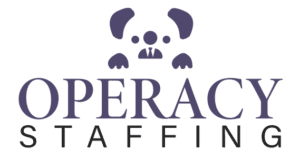As remote work becomes the norm across industries, managing remote talent effectively has become a vital skill for modern businesses. Whether you're working with a team scattered across the globe or tapping into international expertise through a remote staffing agency, the challenge remains the same: how to ensure productivity and engagement in a virtual environment.
The solution lies in a proactive, well-structured project management strategy combined with a people-first approach. Below are some of the best practices to help you manage remote teams more effectively, drive results, and keep your workforce motivated—no matter where they are.
Start with Clear Expectations
Setting clear expectations from the outset is critical. Remote workers need to know exactly what success looks like in their role. This includes deliverables, deadlines, communication standards, and performance metrics.
When engaging a team via a remote staffing agency, ensure they provide detailed role descriptions and project briefs. This avoids confusion and helps newly onboarded remote staff integrate faster into your workflow.
Invest in the Right Tools
Productivity hinges on the tools your team uses. A solid project management strategy includes implementing software that keeps everyone aligned. Platforms like Trello, Asana, or Monday.com allow for task assignment, timeline tracking, and real-time updates.
In addition to project tools, ensure your communication channels—such as Slack, Microsoft Teams, or Zoom—are reliable and used consistently. A fragmented tech stack can lead to missed messages and misaligned priorities.
Foster a Culture of Communication
Remote teams can't thrive without strong communication. Make it a habit to check in regularly—through daily stand-ups, weekly planning sessions, or monthly one-on-ones. Encourage open dialogue and provide channels for both formal and informal discussions.
If you're working with contractors from a remote staffing agency, maintain direct communication with your remote hires whenever possible. This strengthens trust and prevents information bottlenecks.
Prioritise Flexibility and Autonomy
One of the biggest perks of remote work is flexibility. Embrace it. Focus on outcomes rather than hours worked. Giving remote talent the autonomy to manage their time not only boosts productivity but also builds accountability.
However, autonomy doesn't mean detachment. A good project management strategy keeps teams connected while respecting different time zones and work preferences. Implement shared calendars, asynchronous updates, and core working hours to strike a balance.
Track Performance with Transparency
Managing performance remotely doesn't mean micromanaging. Use data to monitor progress, such as task completion rates, milestone tracking, and engagement metrics. Share performance dashboards with your team to keep everyone informed and motivated.
Many remote staffing agencies provide ongoing performance reviews or feedback loops as part of their service. Make use of these reports and supplement them with your own feedback mechanisms.
Encourage Professional Development
Remote workers often miss out on traditional growth opportunities. Make it a point to support their professional development through online training, mentorship, and career advancement paths. This fosters loyalty and engagement—especially in long-term remote roles.
Partnering with a remote staffing agency that values upskilling and ongoing support is a bonus. It ensures your team stays competitive and equipped with the latest skills.
Recognise and Reward Contributions
Remote work can feel isolating, and accomplishments may go unnoticed. Make recognition a regular part of your management routine. Celebrate wins in team meetings, create a digital "wall of fame," or send personalised thank-you messages.
Recognition doesn’t need to be grand—it just needs to be consistent. Feeling appreciated is a key driver of engagement, and it reinforces a positive, productive team culture.
Build Connections Beyond Work
Remote teams miss the casual social interactions that build rapport in physical offices. Find ways to recreate these moments virtually—whether through digital coffee breaks, virtual team-building activities, or non-work-related chat channels.
Some companies even fly in remote staff once or twice a year for in-person retreats or planning sessions. While this might not always be feasible, it’s a worthwhile investment when possible.
Final Thoughts
Managing remote talent is both an art and a science. With the right project management strategy, the right tools, and a commitment to communication and culture, businesses can unlock the full potential of their distributed teams.
A trusted remote staffing agency can also be a valuable partner in sourcing, onboarding, and managing top talent from around the world. By integrating remote workers seamlessly into your operations and fostering a strong team dynamic, you can build a productive, engaged workforce ready to tackle any challenge—no matter where they log in from.
